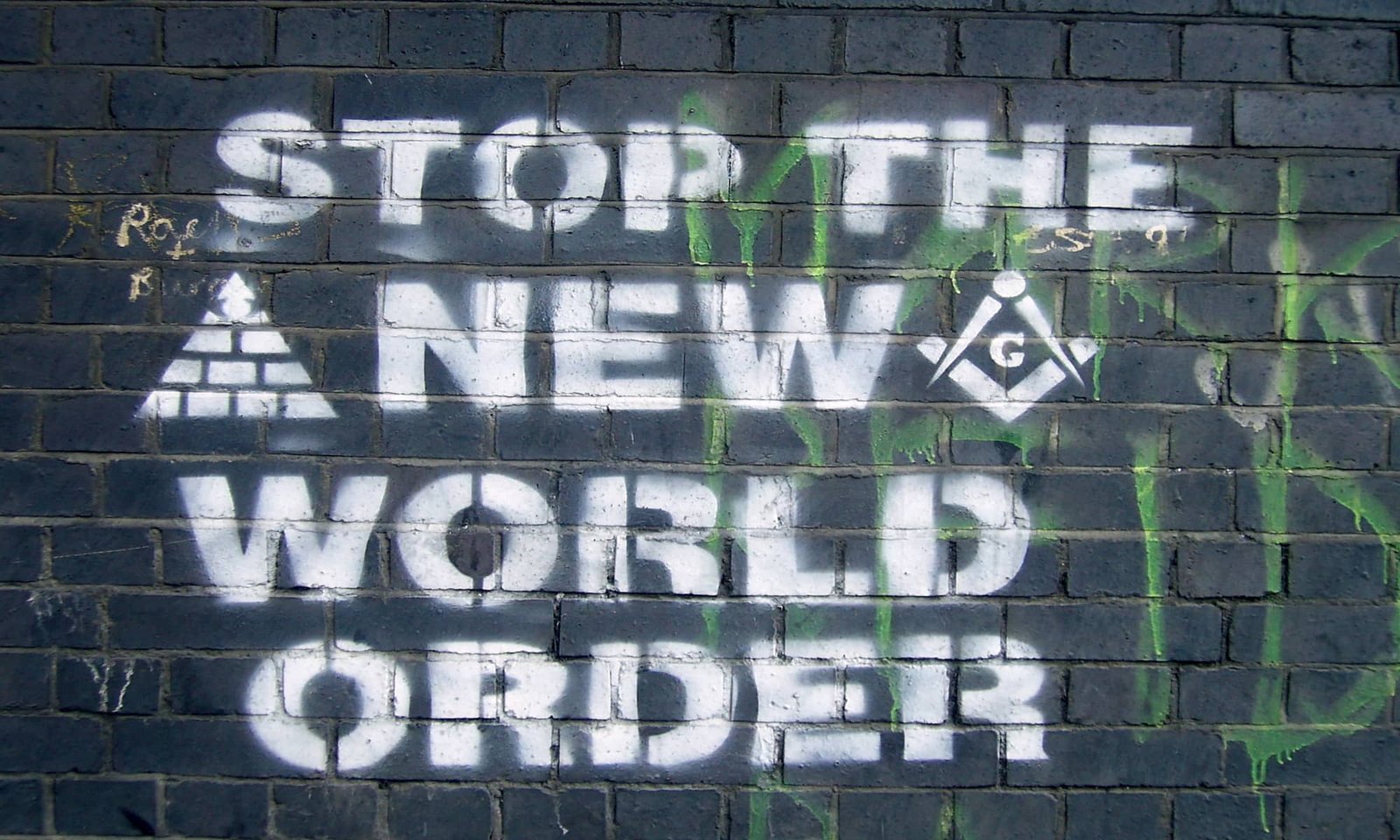Historical Context
The term “New World Order” (NWO) has evolved significantly over the centuries, encompassing a myriad of interpretations and connotations across different historical periods. Its roots can be traced back to the aftermath of World War I, when the League of Nations was established in 1920 with the aim of fostering international cooperation and establishing peace. This diplomatic endeavor marked an early attempt at crafting a new global framework, albeit one that ultimately faltered during subsequent conflicts.
The phrase experienced a revival after World War II, particularly with the establishment of the United Nations in 1945. The collective security arrangements and the promotion of international development were cornerstones of an envisioned global order designed to prevent future wars and promote economic stability. However, it was only after the Cold War, particularly in the late 20th century, that the concept of the New World Order gained significant traction in political discourse. Following the fall of the Berlin Wall in 1989, leaders like U.S. President George H.W. Bush articulated a vision of a world characterized by cooperation and peace, culminating in the Gulf War and the assertion of a united Western response to global threats.
Read More
Globalization emerged as a vital component of the NWO narrative, influencing both economies and cultures across nations. The rise of multinational organizations, such as the International Monetary Fund (IMF) and the World Trade Organization (WTO), further facilitated the interdependence of market economies and promoted the idea of a global governance system. Moreover, the ongoing conflicts in various regions, accompanied by the proliferation of technology and communication, have led theorists and policymakers to redefine the NWO and its implications for security and diplomacy.
Throughout history, various political figures and influential theorists have interpreted the concept of the New World Order uniquely, each reflecting their temporal and situational contexts. The evolution of the NWO narrative demonstrates its complexity and relevance in understanding contemporary dynamics on the global stage.
Key Characteristics
The New World Order (NWO) is often characterized by its significant emphasis on global governance. This concept denotes a shift from traditional state-centric approaches to more collaborative forms of decision-making that involve multiple stakeholders, including nations, international organizations, and non-governmental entities. As the interconnectedness of economies grows, so does the necessity for synchronized policy-making, as seen in trade agreements and international treaties. This interconnectedness is pivotal in addressing complex global issues such as climate change, public health crises, and economic inequality.
Moreover, technology plays a transformative role in shaping political dynamics within the New World Order. The proliferation of digital technologies has not only facilitated instant communication, fostering collaboration across borders, but has also introduced new challenges related to privacy, cybersecurity, and misinformation. With technology being a double-edged sword, its impact on diplomatic relations and power structures in international politics is profound, necessitating new frameworks for governance that can adapt to the pace of technological advancements.
In addition to traditional state actors, the influence of non-state actors has become increasingly prominent. These include multinational corporations, non-governmental organizations, and even individuals wielding significant social media influence. Such entities can transcend national borders, shaping opinions, driving humanitarian efforts, and sometimes even challenging the authority of governments. Their active participation in addressing global challenges implies a shift away from hierarchical power structures, emphasizing a networked approach to global governance.
Understanding these key characteristics of the New World Order is crucial as they continue to reshape global affairs. The implications of these changes call for ongoing analysis and adaptation in our approaches to international law and transnational cooperation. The evolving landscape requires all stakeholders to engage actively in dialogue and collaboration to foster stability and equity in an increasingly complex world.
Controversies and Conspiracy Theories
The New World Order (NWO) is a term that has sparked considerable debate, controversy, and conspiracy theories over the decades. Central to the discourse is the public’s skepticism toward the concept of a centralized global authority, which many perceive as a threat to national sovereignty and individual freedoms. This apprehension is often fueled by historical events, including significant political and economic shifts that challenge the existing power structures.
Public fear of the NWO is not without foundation; numerous conspiracy theories have proliferated, suggesting shadowy elites orchestrate global governance schemes. Prominent theories posit that organizations like the Illuminati or the Freemasons play pivotal roles in advancing a clandestine agenda aimed at establishing a one-world government. Such narratives paint a dire picture of a dystopian future wherein personal liberties are curtailed under an all-controlling regime.
Misinformation plays an integral role in shaping perceptions surrounding the NWO. The rapid spread of information through social media and the internet has enabled unfounded claims to gain traction, often presenting distorted realities that blur the line between fact and fiction. This phenomenon has led to an environment where genuine discussions about international cooperation and governance reform can be overshadowed by conspiracy-laden narratives.
While conspiracy theories surrounding the NWO can appear alarming, it is crucial to approach these topics critically, distinguishing between verified information and speculative claims. Academic discourse often highlights the complexities of global governance and its implications for society, advocating for informed discussions rather than fear-driven narratives. In recognizing the multifaceted nature of the NWO debate, individuals can participate in a more nuanced exploration that acknowledges concerns while fostering constructive dialogue about the future of global collaboration.
Future Perspectives: Potential Impacts
The New World Order (NWO) represents a significant shift in the global landscape, one characterized by evolving political, economic, and social dynamics. Current trends indicate that the NWO could reshape international relations by fostering a greater degree of collaboration among nations to address transnational challenges such as climate change, pandemics, and security threats. As countries become more interdependent, we may witness the emergence of global governing bodies that hold increasing sway over national policies, thereby necessitating robust dialogue among diverse stakeholders in shaping these frameworks.
Economically, the implications of the New World Order could manifest in the form of restructured global trade agreements and economic alliances. Countries may prioritize regional cooperation to foster resilience against global market fluctuations. The shift towards more sustainable practices may also gain momentum, as nations recognize the need for a collective approach to resource management and ethical consumption. In this context, global economic policies may increasingly reflect the priorities of diverse populations, especially those advocating for greater social equity and environmental protection.
Social movements are likely to play an integral role in this evolving order, as citizens become more empowered to influence public discourse and policy-making. The proliferation of digital platforms enables grassroots activism to reach an international audience, amplifying voices advocating for democratic principles and human rights. It is vital that citizens remain vigilant in upholding these ideals amid the complexities of rising global governance. Engaging in dialogue, participating in elections, and leveraging social media can foster accountability in institutions tasked with representing their interests.
The Role of the WEF
Enter the World Economic Forum (WEF), famous for its annual meetings in Davos, Switzerland. Here, leaders from various sectors converge to discuss pressing global issues. The WEF promotes dialogue about economic changes that impact the ‘New World Order.’ It focuses on sustainability, globalization, and embracing technology, encapsulating the essence of what tomorrow’s world might look like.
Is There a Hidden Agenda?
While many view the WEF as a beacon of collaboration and progress, some critics argue it can resemble a clandestine gathering with a hidden agenda. This perception – whether valid or not – often fuels conspiracy theories and public skepticism. It begs the question: Is the WEF merely a talking shop for the elite, or does it have genuine intentions behind shaping a fairer global economy?
Ultimately, as we venture deeper into this new era, understanding the nuances of the New World Order and the WEF’s impact is crucial. Whether you embrace it or critique it, these discussions shape the future of our societies. And let’s face it, who doesn’t love a little insight into the top-tier chats that might influence our economic landscape? Hence, continued engagement and dialogue around these topics remain paramount for informed and participatory decision-making, fostering a more transparent and inclusive global community.
What’s More
The posts in My Blog feature reflective, story-driven pieces rooted in personal and societal insights.
The topics in My Interests explore abstract, philosophical ideas and their cultural and societal impact.
👁️ 6,880 Views















